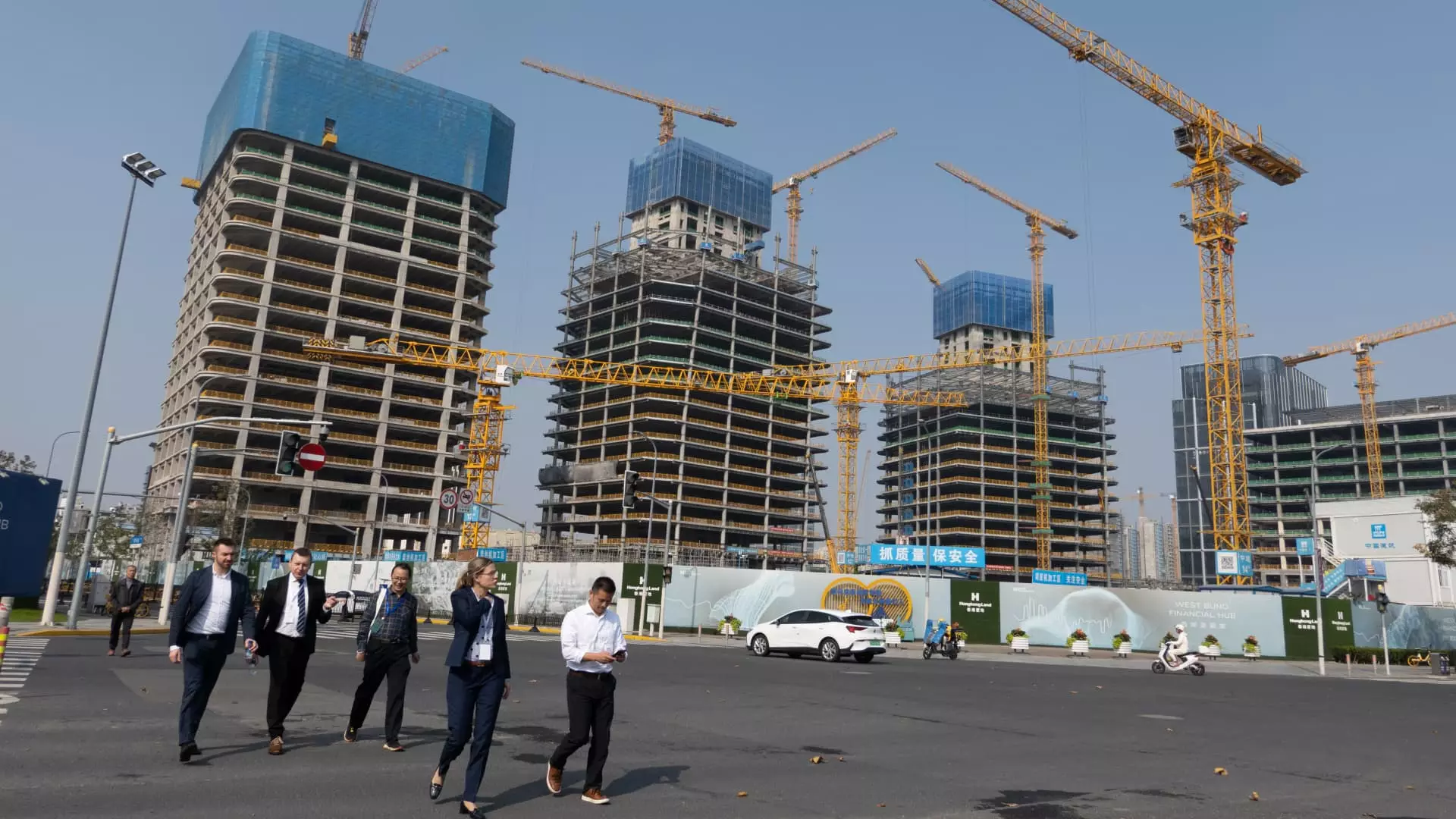China’s economy, notably significant on the global stage, is navigating turbulent waters amidst pressing challenges. Over the last few months, there has been an unmistakable urgency from government officials to galvanize economic growth primarily due to the adverse impacts of a struggling real estate sector and the lingering ramifications of the COVID-19 pandemic. With the economic pressures mounting, the Chinese government is poised to unveil new stimulus measures, highly anticipated to coincide with the conclusion of a major parliamentary session.
Increasing Government Intervention
The push for enhanced fiscal and monetary support is not merely a reaction to external pressures but reflects a strategic recalibration within the Chinese governance framework. President Xi Jinping, during a pivotal meeting in September, underscored the need for robust intervention strategies to prevent any further deterioration in the real estate market—an essential component of local government revenue. This focus on fiscal sustainability suggests a broader acknowledgment of systemic vulnerabilities, particularly the vast swathes of hidden local government debt that have accumulated over time.
The People’s Bank of China has already enacted a series of interest rate cuts aimed at stimulating economic activity; however, these monetary policies alone are insufficient. The critical aspect of enhancing government spending requires the approval of the National People’s Congress (NPC), which traditionally exercises stringent oversight over fiscal matters. The upcoming decisions by the NPC are to be watched closely, as they will set the course for China’s economic policy framework in the near term.
Future Projections and Market Reactions
Market analysts have started to exhibit cautious optimism, with expectations that Beijing will take decisive steps to expand fiscal support. The backdrop of heightened tensions with the United States, particularly following the election of former President Donald Trump, has further triggered discussions about protective measures for domestic industries. However, experts underscore that while there is a push for fiscal expansion, the government may opt for a measured approach, particularly regarding direct payouts or consumer incentives.
Minister of Finance Lan Fo’an has articulated the government’s commitment to responsibly addressing local government debt—a scenario that could potentially increase the issuance of local bonds. With estimates indicating that local governments might be sitting on anywhere from 50 to 60 trillion yuan in hidden debt, any subsequent adjustments in debt policy could significantly alter the financial landscape. A proposal to enhance local government borrowing capabilities by up to 10 trillion yuan may provide necessary relief and facilitate more manageable repayment schedules, ultimately stabilizing the fiscal environment.
As China crosses this pivotal juncture, it finds itself at a crossroads where urgent economic stimuli are essential yet must be carefully balanced against long-term fiscal health. The forthcoming decisions from the National People’s Congress will not only dictate the immediate response to the economic pressures but will also shape the future trajectory of China’s economic policies. Observers of the Chinese economy must remain vigilant as these developments unfold, recognizing that the implications will resonate well beyond China’s borders, impacting global economic dialogue and trade relations moving forward.

